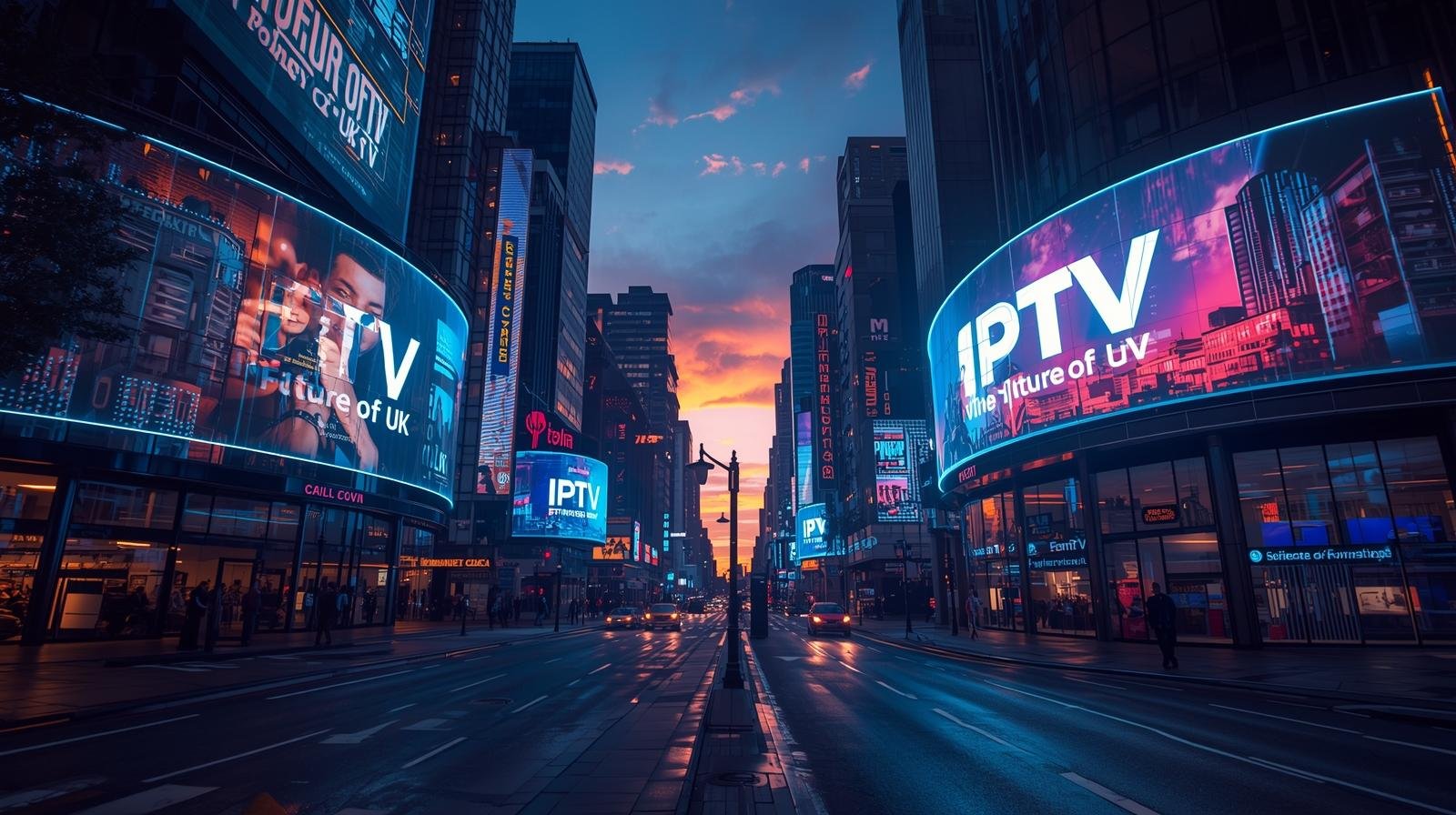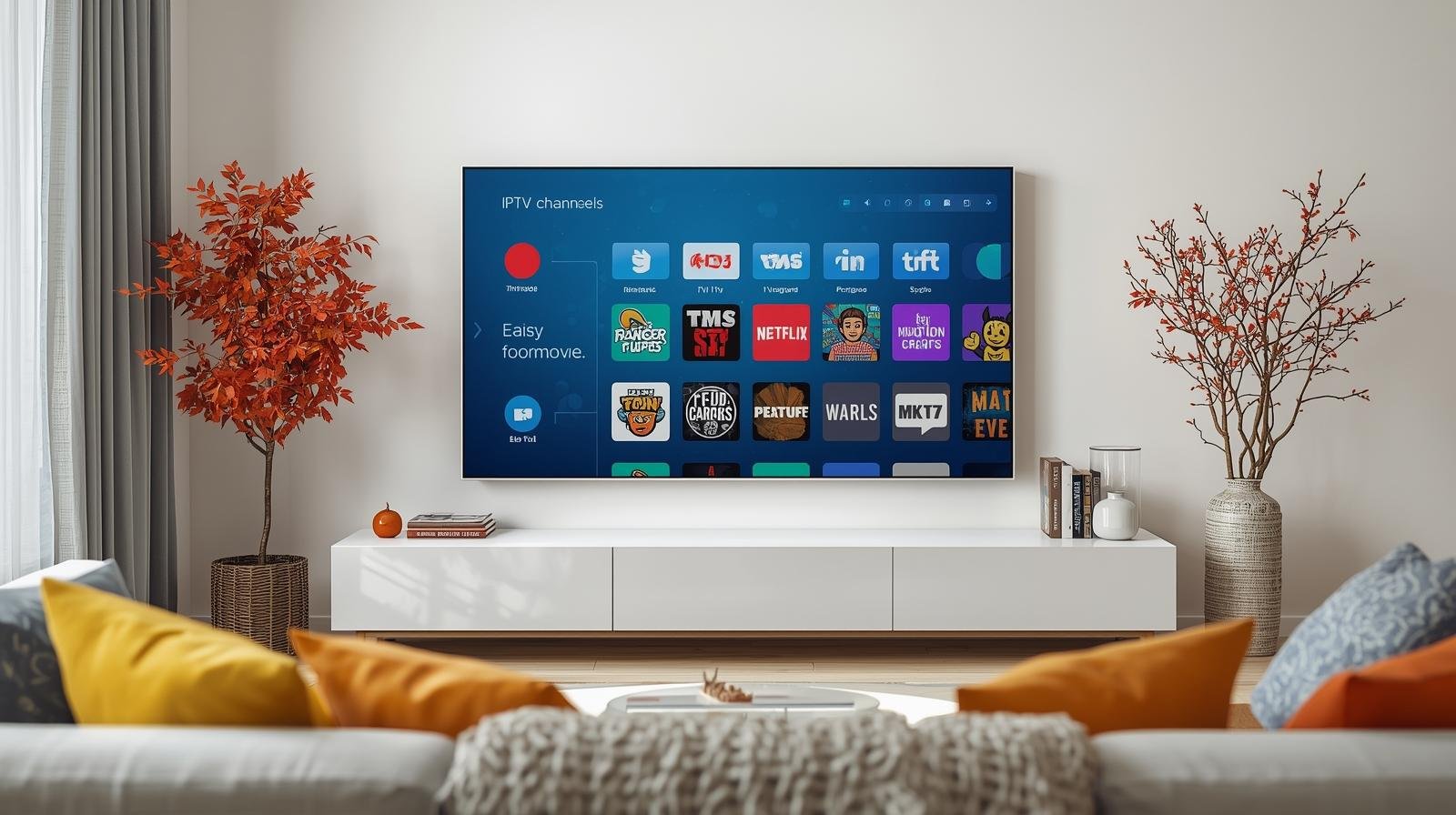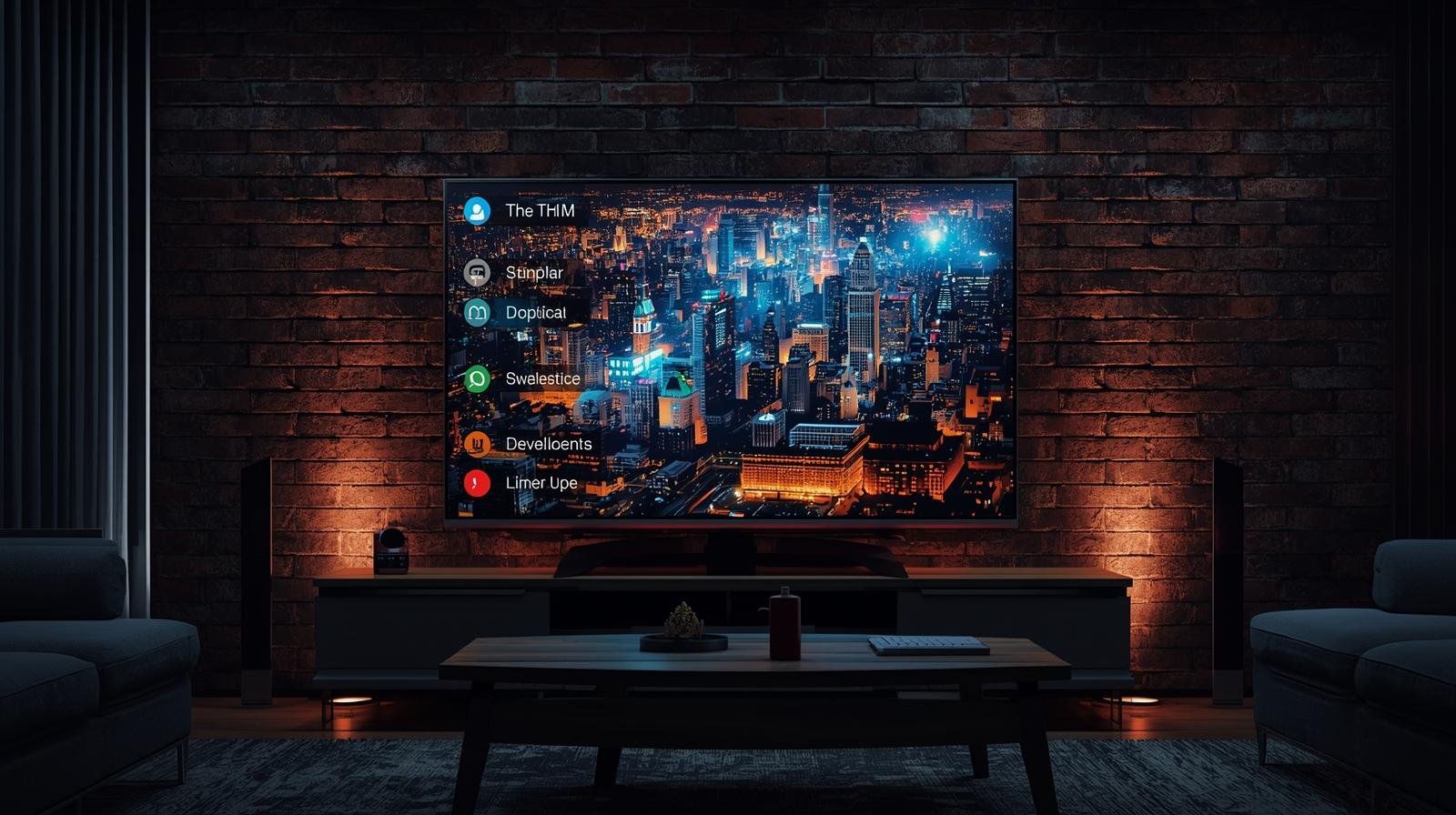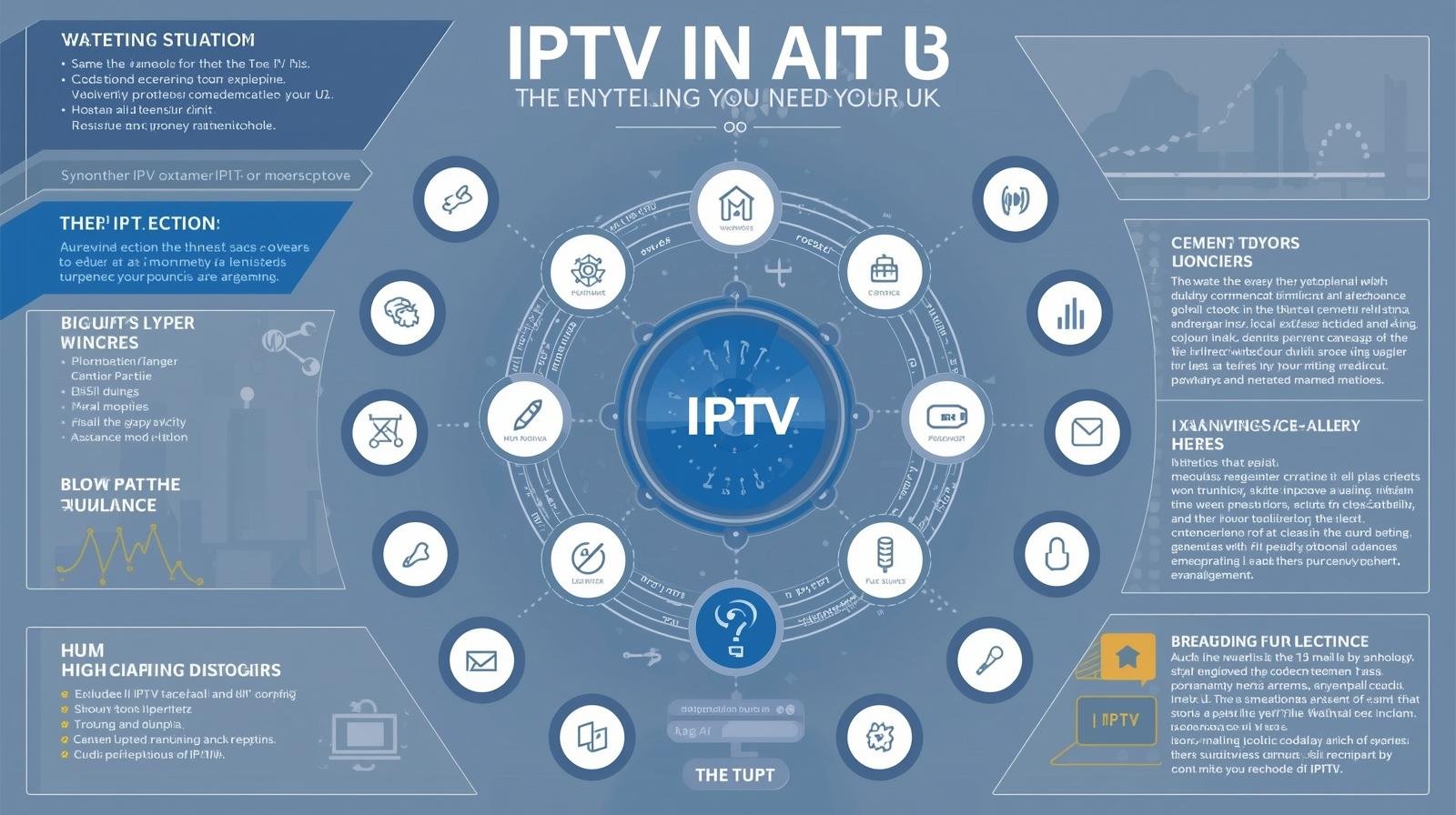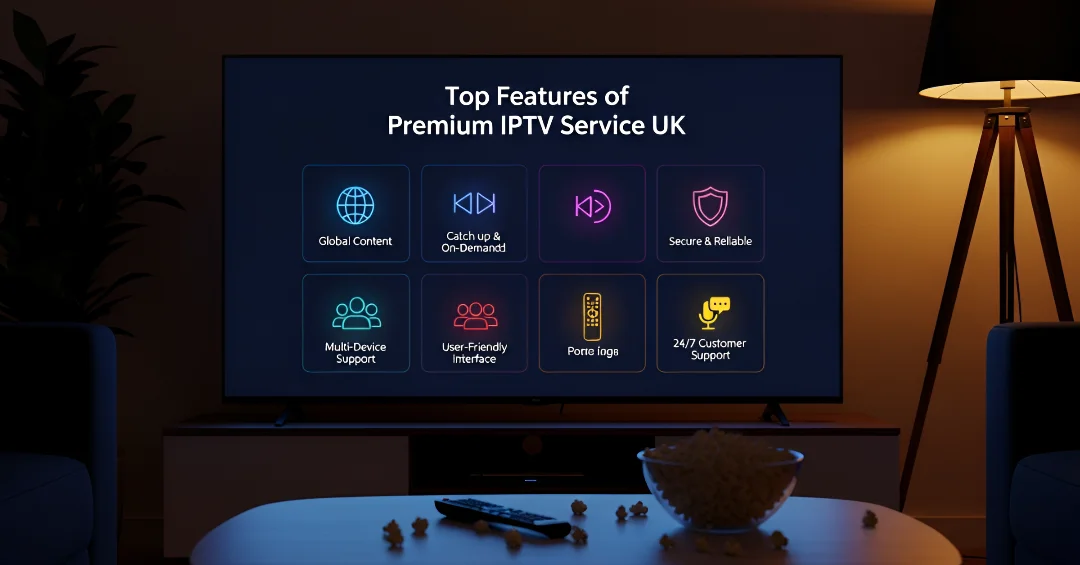1) What is IPTV?
IPTV stands for Internet Protocol Television: television and video delivered over internet networks rather than by DVB-T/T2 terrestrial, satellite, or cable. In practice, iptv uk offerings range from big legal platforms (broadcasters streaming live channels over managed networks or apps) to smaller subscription services that package channel lists for set-top apps, through to illegal, pirated services that rebroadcast pay channels without permission. Legal vs Illicit IPTV.
Put differently, an iptv subscription can be anything from a fully licensed streaming bundle (think legal streaming packages provided by ISPs, international OTT platforms, or broadcaster apps) to clearly unauthorised feeds that offer premium channels at suspiciously low prices. Because the delivery channel is IP, iptv service can be consumed on many devices: smart TVs, phones, tablets, PCs, and media players like the Amazon Fire Stick. For apps people often use with third-party providers, names like IPTV Smarters and IPTV Smarters Pro are common — they are simply player apps that can play M3U playlists or Xtream Codes-style credentials; the app itself is neutral, but the content fed into it may be legal or illegal. (Ofcom explains how internet-delivered TV sits in the regulatory landscape.)
2) Legal framework that matters in the United Kingdom
Understanding the legal framework clears up a lot of confusion. There are three distinct legal threads that apply to iptv uk:
- Copyright and content rights — broadcasters and rights holders own the distribution rights to live sport, movies, and TV. Anyone rebroadcasting these without permission is committing copyright infringement. Enforcement actions and prosecutions show this is taken seriously. For example, UK law has been used to prosecute operators and obtain civil damages against pirating platforms. Recently, criminal sentences have been handed down in high-profile cases where people were operating large illegal IPTV services.
- TV Licence rules — UK residents must have a TV Licence to watch or record live TV on any channel or device and to watch BBC iPlayer. If you watch live TV via an IPTV stream that retransmits live channels, you almost always need a TV Licence. The official gov.uk and TV Licensing guidance make this clear: watching live channels (or BBC iPlayer) requires a licence.
- Regulation (Ofcom, advertising and broadcasting rules) — Ofcom oversees broadcast standards and has guidance for IPTV when it functions like a broadcast channel (for example, if the IPTV channel is listed in an EPG and appears like a linear channel). In recent years government consultation and regulation conversations have also addressed when IPTV should be treated like broadcast for advertising rules and consumer protections.
Taken together, those three areas mean: the technology itself (IPTV) is not illegal, but the content and the rights to distribute it are what determine lawfulness. Put plainly: you can have legal iptv uk services, but you can also have illegal iptv streams that infringe copyright and expose users and operators to legal and financial risk. Legal vs Illicit IPTV.
3) Legal IPTV providers — what they look like and why they’re safe
A legal IPTV provider is a player that has the rights (licenses) to show the channels and programmes it streams. That could be:
- Major broadcasters distributing via apps (BBC iPlayer, ITVX etc.).
- Licensed OTT services (DAZN, Amazon Prime Video Channels, Now TV, Pluto TV where licensed).
- ISP bundles or legitimate IPTV packages offered by recognized companies that disclose rights, terms, and contact details.
How to recognise a legal iptv subscription:
- Clear business identity. A company name, address, and UK/EU registrant details should be easy to find.
- Transparent pricing and billing. Legit services use standard payment methods (cards, PayPal) and provide invoices/receipts.
- Rights or content sourcing stated. They’ll state which channels are included and sometimes how they secure rights.
- Trial and refund policies. A legitimate iptv uk free trial or a money-back guarantee is common and is usually administered transparently.
- Customer support and updates. Real providers have support channels and keep their apps/streams maintained.
- No “too good to be true” pricing. If a service offers hundreds of premium live channels and top sport for a few pounds a month, alarm bells should ring.
Why go legal? Because with a legal iptv subscription you get reliability, safety from malware/fraud, better streaming quality, and you avoid the legal exposure that comes from using illicit streams. Also, legal services usually integrate properly with popular player apps (including IPTV Smarters as a client), have EPG support and stable server capacity, and provide secure payment. Legal vs Illicit IPTV.
If you want recommendations, reputable editorial lists and reviews often collate best iptv uk options and highlight fully licensed platforms — however, always verify that an “iptv provider” listed on a blog is actually licensed for UK distribution before subscribing.
4) Illicit IPTV streams — what they are and the risks
Illicit IPTV providers (sometimes called “pirate IPTV”, illegal IPTV or simply “illicit streams”) typically operate by aggregating and rebroadcasting channels to paying customers without licenses. They often:
- Sell iptv subscriptions at very low prices.
- Offer “unlimited” channels, including Sky Sports, BT Sport/TNT Sport, Premier League, and pay-per-view events, which is a strong sign of illegality.
- Use grey markets, anonymous payment methods, or offshore hosting to avoid enforcement.
- Distribute credentials in forums, Telegram, or private websites and push users to use third-party apps like IPTV Smarters Pro to play the streams.
Risks to users:
- Legal and financial exposure. While prosecutions of end-users are rarer than prosecutions of operators, users can face civil claims or be implicated in investigations. Operators and resellers have received heavy fines and custodial sentences. For example, the UK’s PIPCU (Police Intellectual Property Crime Unit) and partnering agencies have pursued operators and secured convictions and jail terms. Recent law-enforcement press releases document convictions and sentences against operators who ran illicit IPTV services.
- Security risks. Illicit IPTV sites and “free trials” are common vectors for malware, phishing, and credit-card fraud.
- Poor reliability and quality. Streams often die, buffers appear at peak times, and support is non-existent.
- No consumer protections. If the service disappears, money is usually gone; there’s no legal recourse or refund.
- Links to organised crime. Serious piracy operations can be linked to wider criminal activity; enforcement bodies treat them accordingly.
Bottom line: if a service sells premium UK content at implausibly low prices and hides who runs it, it’s likely illicit — and the short-term “savings” can cost you far more in fines, fraud, or malware exposure. Legal vs Illicit IPTV.
5) How enforcement actually works in the UK
Enforcement in the UK uses a mix of civil, criminal and regulatory tools:
- Civil claims by rights-holders to recover damages and secure injunctions.
- Criminal prosecutions for large-scale operations (fraud, facilitating copyright infringement).
- Police units (PIPCU) working with broadcasters and industry groups (e.g., FACT) to identify, seize, and shut down services.
- ISP-level blocking and account suspensions in coordinated actions.
Recent actions illustrate the point: there have been high-profile convictions and heavy financial penalties against operators found running illegal IPTV services. For example, sentences and recoveries in 2024–2025 show UK authorities actively pursuing operators and shutting services; a City of London police press release from October 2025 describes a three-year sentence for an operator of an illicit IPTV service. Other major crackdowns and civil actions against pirate apps and streaming networks also appeared in 2024–2025. These examples underline that enforcement is ongoing and increasing. Legal vs Illicit IPTV.
Because enforcement is active and visible, using or reselling illicit iptv subscriptions has concrete, real-world risk.
6) The TV Licence: what UK viewers must know
If you watch live TV (channels as they broadcast) or use BBC iPlayer, you need a TV Licence in the UK. This applies regardless of whether you watch via terrestrial, satellite, cable or an iptv stream that carries live channels. So, if your iptv subscription provides live channels (including live BBC channels), you need a TV Licence. The gov.uk and TV Licensing pages explain this directly.
Important practical points:
- Only live TV and BBC iPlayer require the licence. Many on-demand services (Netflix, Amazon Prime, ITVX on catch-up) do not require a TV Licence if you only use them for on-demand.
- If you watch a live stream of a channel via IPTV, licence is required. That includes watching via an iptv subscription that rebroadcasts live channels.
- Having a legal iptv service doesn’t remove the TV Licence obligation. The licence is separate from whether a service is licensed to broadcast; it’s about whether you’re watching live TV.
So, whether you choose a legal iptv provider or a cable alternative, check the TV Licensing guidance and make sure you are compliant if you’re watching live channels. Legal vs Illicit IPTV.
7) Device and app notes (Fire Stick, Smart TV, phones, IPTV Smarters)
Many UK users run IPTV on Amazon Fire Stick devices, Android boxes, smart TVs, or iPhones. A few practical notes:
- Amazon/Fire Stick: Fire Stick is a popular delivery device. However, Amazon and other vendors have been tightening rules and removing pirated apps from their stores. Side-loading unofficial apps can expose you to malware and void warranties. Always prefer official app-store apps or well-known clients from reputable developers.
- Smart TVs: Many modern smart TVs have browser or app support for official apps. Prefer native apps from known providers where possible.
- IPTV player apps: Apps such as IPTV Smarters and IPTV Smarters Pro are widely used clients that can play M3U playlists or Xtream-style credentials. The apps themselves are neutral tools — they do not provide content. The legality depends on the playlist or service you connect to. Use them only with legitimate subscriptions.
- Security: Avoid installing random APKs from unknown sources. If a provider instructs you to side-load unknown software, treat that as a red flag.
- Quality: Legal providers often supply stable HD/4K streams with EPG, catch-up, and reliable support. Illicit streams commonly struggle under load and provide poor UX.
Remember: apps like IPTV Smarters are only players. Your safety and legality come from the source of the stream (the iptv provider), not the player app. Mentioning IPTV Smarters in searches or discussions is fine, but always verify the source. (The app name will frequently appear in iptv provider setup instructions because it’s a common client.). Legal vs Illicit IPTV.
8) How to tell if an IPTV provider is legitimate — checklist (practical step-by-step)
Below is a step-by-step checklist (explained) to evaluate any iptv provider claiming to serve the United Kingdom:
- Check corporate details — Do they show a company name, address, and contact details? A legitimate business will have them and will usually provide VAT or registration details. If not, be cautious.
- Payment methods and invoicing — Legit providers use standard payment rails (credit/debit cards, PayPal, Stripe) and provide receipts/invoices. Anonymous crypto-only payments are a red flag.
- Channel list and rights statement — Look for a clear channel list and whether they claim to have distribution rights. If a provider claims to include premium pay channels (e.g., Sky Sports, TNT Sport) for a tiny fee, ask how they have licensed them.
- Free trial and refund policy — A genuine iptv uk free trial or refund policy will be implemented transparently. However, beware of “free trials” that require giving credit-card details but then lock you into recurring payments.
- Reviews and community feedback — Search for independent reviews (not just testimonials on the provider’s own site). Forums and tech communities can reveal whether a provider is stable and legitimate.
- Technical transparency — A good provider will explain what apps they support (e.g., IPTV Smarters Pro) and how they supply EPGs and catch-up. They will not ask you to install suspicious APKs.
Use the checklist to vet any iptv subscription before handing over payment. If you’re unsure, choose a major licensed platform or a reputable ISP bundle.
9) Real examples — enforcement stories and what they teach us
High-profile enforcement cases show real consequences. Recent UK cases included operators receiving prison time, suspended sentences, and large civil damages when they were found to be operating services that rebroadcast Sky and other premium channels without rights. Law-enforcement press releases and media coverage in 2024–2025 show both criminal sentences and civil rulings against pirate operators. These actions underline the industry’s coordinated effort to disrupt illicit iptv services. Legal vs Illicit IPTV.
Lessons:
- Operators can be traced through payments, hosting, and logs; anonymity is often illusory.
- Resellers or “middlemen” who package stolen streams for customers have been targeted as well.
- Consumers are generally less likely to be prosecuted than operators, but they’re still at financial and security risk.
10) Common myths and clarifications
Myth 1: “IPTV is illegal.” — No. The technology is neutral. Legal services use IPTV; illegal services misuse it. See Ofcom guidance.
Myth 2: “If I use a VPN, I’m safe.” — No. VPNs can add privacy but do not make illegal streams lawful, and they do not protect you from fraud, malware or civil liability in every case.
Myth 3: “Paid IPTV subscriptions sold cheaply are fine.” — Often false. Cheaper-than-credible pricing for premium channels is one of the clearest red flags of illicit iptv service.
Myth 4: “The player app is illegal.” — Not necessarily. Apps like IPTV Smarters are clients; legality depends on the streams you connect them to.
11) Step-by-step: How to subscribe safely to IPTV in the UK (800-word practical walkthrough)
Below is an explicit, detailed step-by-step walkthrough (described thoroughly) showing how to choose and subscribe to a safe iptv uk service, including device setup and verification. This long, clear section addresses “every step” so you can proceed methodically.
- Decide what you want — First, list the channels, sports, and on-demand content you want. For instance, if you want Premier League plus movie channels, write them down. This clarifies whether a mainstream licensed service will cover your needs (e.g., Sky/Now/DAZN/BT Sport offerings) or whether you need an alternative.
- Start with major licensed options — Check whether mainstream legal services already provide what you need. Often, a combination of licensed apps (e.g., a sports pass plus a streamer) solves the use case without resorting to unknown iptv providers. Use “iptv uk free trial” offers from reputable platforms to test.
- Search and shortlist providers — If you still need an iptv subscription from a specialist provider, make a shortlist of 3–5 providers. Use reputable review sites and community forums, and include at least one provider that is known to operate legally in the UK. Legal vs Illicit IPTV.
- Apply the legitimacy checklist — For each shortlisted provider, check corporate details, payment methods, channel lists, trial/refund policies, and user reviews. Verify that support responds to questions. Ask pre-sale support whether a given provider holds UK rights for the channels you need.
- Test the free trial carefully — Many iptv providers advertise a free trial. Use that trial to test: stream quality during peak times, EPG accuracy, catch-up availability, and stream reliability. Don’t store payment details if you’re wary; use prepaid methods if available.
This step-by-step plan reduces risk and steers you toward legitimate, stable iptv services while helping you avoid piracy and the attendant consequences.
12) Why people choose IPTV — legitimate benefits (and where piracy falsely competes)
People are switching to iptv uk offerings for several legitimate reasons:
- Flexibility — Watch on multiple devices without a satellite dish.
- Customization — Packages can be more granular than legacy cable.
- Potential cost savings — For some use cases and when using licensed bundles, costs can be lower.
- Global content — Access to international channels and niche programming
However, pirated services often market these exact benefits while cutting legal corners. It’s important to weigh real convenience against the obvious risks of illicit streams. Choosing best iptv service should focus on licence, reliability, support, and price fairness — not purely the number of channels or low price. Legal vs Illicit IPTV.
13) Frequently asked questions (short, practical answers)
Q: Is IPTV Smarters Pro illegal?
A: No — IPTV Smarters Pro is a media player app. The legality depends on the streams you feed into it.
Q: Can I get a refund if an iptv subscription dies?
A: With legitimate providers, yes; with illicit services, probably not. Always use traceable payments.
Q: Do I need a TV Licence for IPTV?
A: If you watch live TV or BBC iPlayer via IPTV, yes. If you only watch on-demand content from non-BBC services, you generally do not. Check TV Licensing guidance.
Q: Are prosecutions happening in 2025?
A: Yes — enforcement has continued with convictions and sentences for operators of illicit services in 2024–2025. Recent PIPCU press releases and news stories document this activity.
14) Practical recommendations (quick list)
- Prefer licensed mainstream providers first.
- If you choose a specialist iptv provider, apply the checklist above.
- Avoid providers offering “too many premium channels for a few pounds.”
- Don’t side-load random APKs; use official stores where possible.
- Ensure you have a TV Licence if you watch live TV.
- Use traceable payments and keep receipts.
- If something looks illegal, report it — it helps reduce piracy and protect consumers.
15) Closing — balancing choice, value and legality
IPTV is a powerful and flexible delivery method that can be entirely legal and consumer-friendly when used with licensed providers. At the same time, the iptv landscape includes illicit streams that put users and operators at real risk. In the United Kingdom, copyright law, TV Licence obligations, and regulatory oversight (including Ofcom) shape how IPTV can and should be used. The practical guidance in this article — from the provider checklist to the step-by-step subscription walkthrough — is designed to help you enjoy iptv uk safely, get the best iptv experience for your needs, and avoid the traps of illegal services. Legal vs Illicit IPTV.
If you want, I can now:
- Provide a vetted shortlist of well-known legal IPTV/streaming options that are commonly recommended for UK viewers, or
- Create a printable checklist (PDF) you can use while evaluating iptv providers, or
- Draft a short “email template” you can send to a provider asking for proof of licensing and refund policies before you subscribe.
Tell me which of those you’d like and I’ll produce it right away.
Sources and further reading (selected)
- Ofcom — Information on Internet Protocol TV and regulation.
- GOV.UK — TV Licence requirements and guidance.
- PIPCU / City of London Police — Enforcement press release: operator sentenced for illegal IPTV service (October 2025).
- FACT / local enforcement reports — recent crackdowns and joint investigations into IPTV piracy.
- Government response on illicit IPTV call for views (background on government approach).



